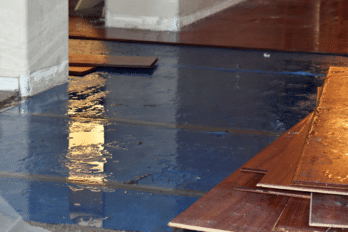
Eight Tips for Buying a New Build
For many, buying a new building is a dream come true. Moving into a pristine property that perfectly meets your needs and that should require zero maintenance for years to come is something many house hunters look for. However, buying a new build brings with it its own set of challenges, and it’s important to know how the process differs from buying a lived-in property to ensure it runs as smoothly as possible. So, what should buyers bear in mind when investing in a new build?
Find the right property
When buying any property, it’s important to be sure you’re making the right decision, but when buying a new build, there are a few additional factors to consider. For example, you’ll be purchasing from a developer, so it’s worth doing some research to check their track record and read reviews from previous buyers – don’t just rely on the developer’s promotional material to make your decision. You could even visit their other developments if there are some nearby. If you’re buying off plan – so the home hasn’t been built yet – it’s even more important to do your prep work. In this situation, it’s advisable to ask for a detailed specification listing the materials, fixtures and fittings used throughout the property rather than assuming it’ll look like the show home. This will also allow you to check that the developer has met the necessary standards of quality set out in its warranty.
When buying a new build, it’s also important to be aware of schedules so you can plan your move and be confident the home will be ready on time. Of course, delays often occur with new developments, so keep in close contact with your developer. Also, be aware that you’ll likely be given two dates – the short-stop date, when the developers expect to have finished building your home, and the long-stop date – the date by which they must have completed the work. If your home isn’t ready by this date, you may be eligible for compensation or have the option to rescind the contract and have your deposit returned.
Be clear on what’s included in the price
As some developers may offer financial incentives to encourage you to buy, or you may choose to negotiate to have extras included for free, it’s important to be clear on what’s included in the price. For example, some developers will pay your Stamp Duty Land Tax, which could affect how much you can borrow. You could also negotiate to have different fixtures and fittings installed at no extra cost. Be sure to get anything like this agreed in writing so there’s no further confusion.
Check for any extra costs
If you’re buying a flat, management fees or service charges can be hefty, so make sure these are factored into your budgeting. In recent years, ground rents have also become a feature of new build leasehold properties. Since 2022 these have been banned on new leases, so if you see one on your contract, query it immediately. Be aware, though, that a leasehold property could come with other restrictions, such as obtaining the freeholder’s consent if you want to make alterations to the property, sub-let or own pets. Ask your solicitor to discuss the fees and clauses in detail so you know what to expect. On a similar note, your developer may well recommend a solicitor for you to use. Still, it’s always worth finding your own independent professional so you can be sure you’re getting impartial advice.
Speak to a mortgage advisor
While this is advisable when buying any property, it’s even more so when purchasing a new build. You should, of course, have a mortgage agreement in principle in place when you start looking at new builds to buy. However, as timescales are often longer, especially if buying off plan, it may be that the offer you had at the start of the process is no longer valid when the property is ready for you to move into. An experienced mortgage advisor will be able to explain your options as you move through the process.
Reserve your property
Once you’re happy with your property choice and your finances are in place, it’s time to reserve your property. You’ll have to pay a reservation fee, which can be anything from £500 to £2,000. This will reserve the house for you for 28 days when the developer expects to exchange contracts. You should also receive a reservation agreement detailing relevant information, such as the fee paid, the property’s total price, your cancellation rights and the estimated completion date. Once the purchase completes, the reservation fee will be deducted from the final price. You’ll lose your reservation fee if you don’t exchange in time.
Get a snagging list
It’s at this point you should think about getting a New Build Snagging List. When buying an older home, you should always get a survey before you exchange contracts. This means that if the survey exposes any issues you can still back out of the sale. However, with newbuilds it may well be the case that you’ll exchange before the property is completed in which case you may not have the chance to have a survey or snagging list carried out in advance. Despite this it’s still important that you schedule a snagging list. While you’re probably starting to get excited about moving into your pristine new home, the reality is that many new builds have niggles and issues that the developer should fix before you move in. When getting a professional snagging list, a specialist inspector will look at every corner of the property, inside and out, highlight any issues and explain them in a comprehensive report, complete with photos, so your developer has to act. By arranging this before you move in, you can be confident your home will be at the standard you expect by the time it comes to completion. It’s also worth asking for a snagging provision to be included in your contract so if you find any future issues, they’ll be sorted.
Exchange contracts
While you’ll probably be eager to sign contracts and start planning the move into your new home, it’s essential that both you and your solicitor thoroughly read through all the paperwork before you sign. If you’ve negotiated discounts or extras, double-check they’re included and make sure everything tallies up with your reservation agreement and anything else you’ve agreed pre-contract. Once you’ve signed and exchanged, you and the developer are legally bound, so take your time and make sure everything is exactly how you want it to be.
Watch out for warranties
The 10-year new-build home warranty that comes with all new builds is often seen as one of the benefits of buying a new property. However, it’s important to know that not all aspects of your home are covered for the whole ten years, and not all developers are forthcoming when it comes to meeting their obligations.
The warranty kicks in when you exchange contracts, at which point it will cover your deposit against the firm going insolvent. Once the property is built, the warranty is split into two periods – the defects insurance, which covers the first two years, and the structural insurance period, which covers years three to 10.
So, if there are issues with the builder’s work during those first two years, such as windows leaking because of poor fitting or faulty pipes, the builder is obliged to come and fix them for free.
Once the structural insurance period kicks in, however, the builder is only responsible for major problems with the structure of the house, such as those affecting the foundations, roof and load-bearing parts of the floors. Non-structural issues, such as problems with your fixtures and fittings, are no longer covered.
For this reason, it’s also worth getting a survey on a new build property so you can be confident your home is safe and there are no structural issues. A Level 2 RICS HomeBuyer Report is usually sufficient for a new build property. And always read the details of your warranty carefully so you know what’s covered and what isn’t.
Novello offers timely, accurate and cost-effective surveys and snagging lists carried out by impartial specialists. To find out more, contact us or arrange a free quotation now.

